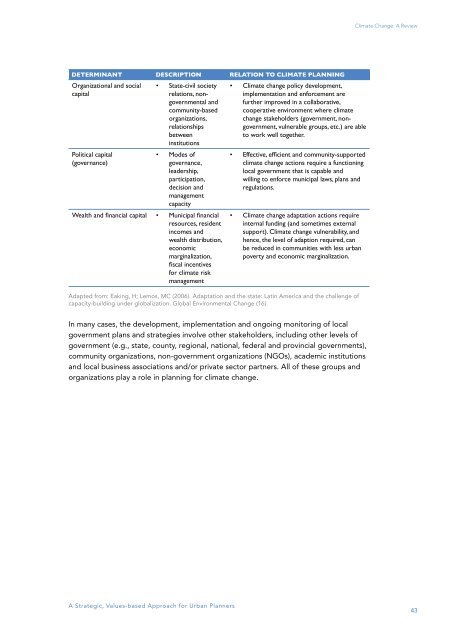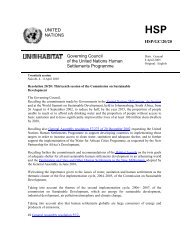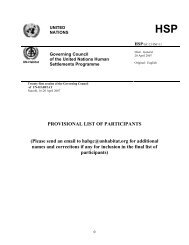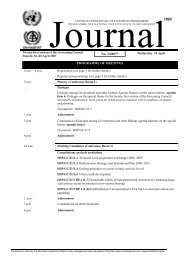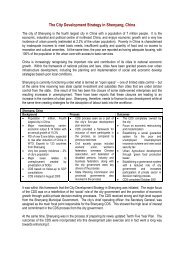Planning for Climate Change - UN-Habitat
Planning for Climate Change - UN-Habitat
Planning for Climate Change - UN-Habitat
You also want an ePaper? Increase the reach of your titles
YUMPU automatically turns print PDFs into web optimized ePapers that Google loves.
<strong>Climate</strong> <strong>Change</strong>: A Review<br />
DETERMINANT DESCRIPTION RELATION TO CLIMATE PLANNING<br />
Organizational and social<br />
capital<br />
Political capital<br />
(governance)<br />
<br />
<br />
State-civil society<br />
relations, nongovernmental<br />
and<br />
community-based<br />
organizations,<br />
relationships<br />
between<br />
institutions<br />
Modes of<br />
governance,<br />
leadership,<br />
participation,<br />
decision and<br />
management<br />
capacity<br />
<br />
resources, resident<br />
incomes and<br />
wealth distribution,<br />
economic<br />
marginalization,<br />
<br />
<strong>for</strong> climate risk<br />
management<br />
<br />
<br />
<br />
<strong>Climate</strong> change policy development,<br />
implementation and en<strong>for</strong>cement are<br />
further improved in a collaborative,<br />
cooperative environment where climate<br />
change stakeholders (government, nongovernment,<br />
vulnerable groups, etc.) are able<br />
to work well together.<br />
<br />
climate change actions require a functioning<br />
local government that is capable and<br />
willing to en<strong>for</strong>ce municipal laws, plans and<br />
regulations.<br />
<strong>Climate</strong> change adaptation actions require<br />
internal funding (and sometimes external<br />
support). <strong>Climate</strong> change vulnerability, and<br />
hence, the level of adaption required, can<br />
be reduced in communities with less urban<br />
poverty and economic marginalization.<br />
Adapted from: Eaking, H; Lemos, MC (2006). Adaptation and the state: Latin America and the challenge of<br />
capacity-building under globalization. Global Environmental <strong>Change</strong> (16).<br />
In many cases, the development, implementation and ongoing monitoring of local<br />
government plans and strategies involve other stakeholders, including other levels of<br />
government (e.g., state, county, regional, national, federal and provincial governments),<br />
community organizations, non-government organizations (NGOs), academic institutions<br />
and local business associations and/or private sector partners. All of these groups and<br />
organizations play a role in planning <strong>for</strong> climate change.<br />
A Strategic, Values-based Approach <strong>for</strong> Urban Planners<br />
43


